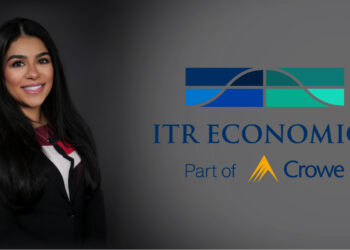
Kristine Kern is a principal consultant at The Table Group, a firm dedicated to helping organizations become healthier and more effective. Here, Kern explains the hallmark of a healthy company, and what to do if your business is running ineffectively.
CS: What is organizational health, and why is it important to business?
KK: Organizational health is a concept developed by Patrick Lencioni (founder of the firm I work for and author of many best selling books) that describes one aspect of a successful organization. They need to be smart (in the usual disciplines like marketing, finance, strategy, HR) and they need to be healthy. Most leaders focus on smart because that’s more known to us, but the healthy side represents a true competitive advantage. There are four disciplines of a healthy organization:
• Build a cohesive leadership team.
• Create clarity around six critical questions.
• Over-communicate that clarity to leadership and staff.
• Reinforce the clarity through human systems.
CS: How can you tell if you have organizational health, and if you don’t, how can you develop it?
KK: The signs of a healthy organization are a minimum of politics (people don’t change what they say based on who’s in the room), a minimum of confusion (everyone knows the goals and strategies and how to get there), high morale, high productivity and low turnover among good people.
Developing organizational health is simple, but not easy. It’s best described in Lencioni’s book “The Advantage.” You can also check out the website for The Table Group, where there are videos and other resources to help those interested in building healthy organizations.
CS: What are some signs of a “dysfunctional team” for health club owners and operators to look out for?
KK: There are lots of signs to watch out for with dysfunctional teams. Just a few examples:
• Team members don’t trust each other.
• Team members are unwilling to admit weaknesses.
• The team morale is not affected when goals aren’t met.
• Team meetings are boring and the difficult issues go unaddressed.
• Team members hold back and don’t give their honest opinions when discussing important issues.
Those interested in a more complete picture can take our team assessment here: http://www.tablegroup.com/dysfunctions/.
CS: If you notice your team is dysfunctional or ineffective, what steps should you take?
KK: Leaders who have teams that are dysfunctional can focus on these critical areas:
a. Building vulnerability-based trust.
b. Engaging in healthy, constructive conflict.
c. Developing commitment.
d. Peer-to-peer accountability.
e. Focusing on collective results.
[It’s] best to start with trust and we have a couple of simple exercises that leaders can use with their teams to get the ball rolling. The first is personal histories and the second is the team effectiveness exercise. Both are free and described on our website.
CS: You’ve written a lot of articles for Inc.com about meetings. How can health clubs ensure the meetings they’re holding with staff are effective/efficient?
KK: The first thing to know is that great meetings take discipline; they don’t just happen. We believe strongly that you need to hold different meeting types for different kinds of information. For example, strategic topics are different from tactical items, which are different from administrative things. Our meetings model is a great starting place that organizations can try out and then adjust to fit their own needs.
CS: Is there anything else concerning leadership/teamwork you think health club owner and operators would benefit from knowing?
KK: Much like great meetings, great teams don’t just happen. Health club owners and operators should know that being a great, healthy organization is not a natural state — so don’t be hard on yourself if your club doesn’t measure up. Just know that there are tools that work and if you’re committed you can create a healthy organization that gets great results.
Stay ahead in the fitness industry with exclusive updates!
Rachel Zabonick-Chonko is the editor-in-chief of Club Solutions Magazine. She can be reached at rachel@peakemedia.com.











